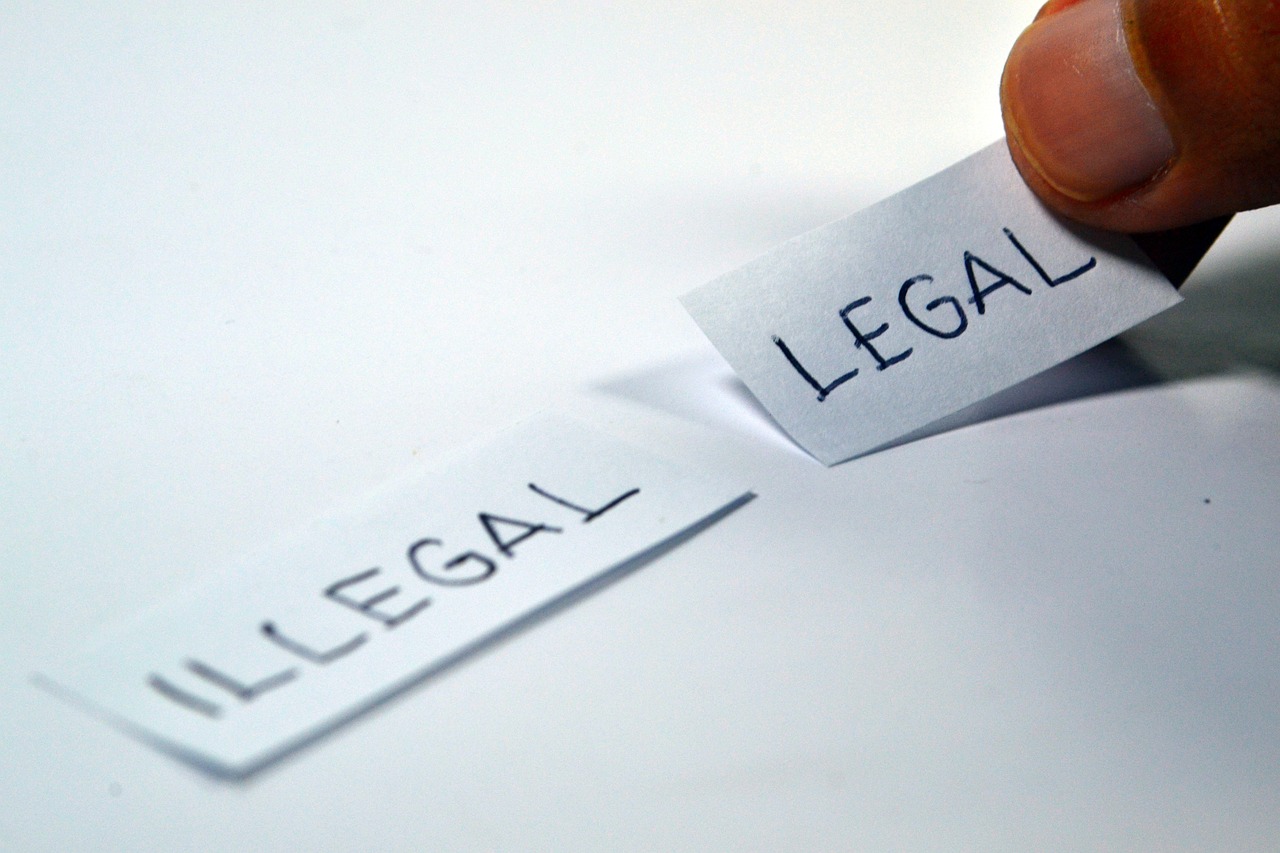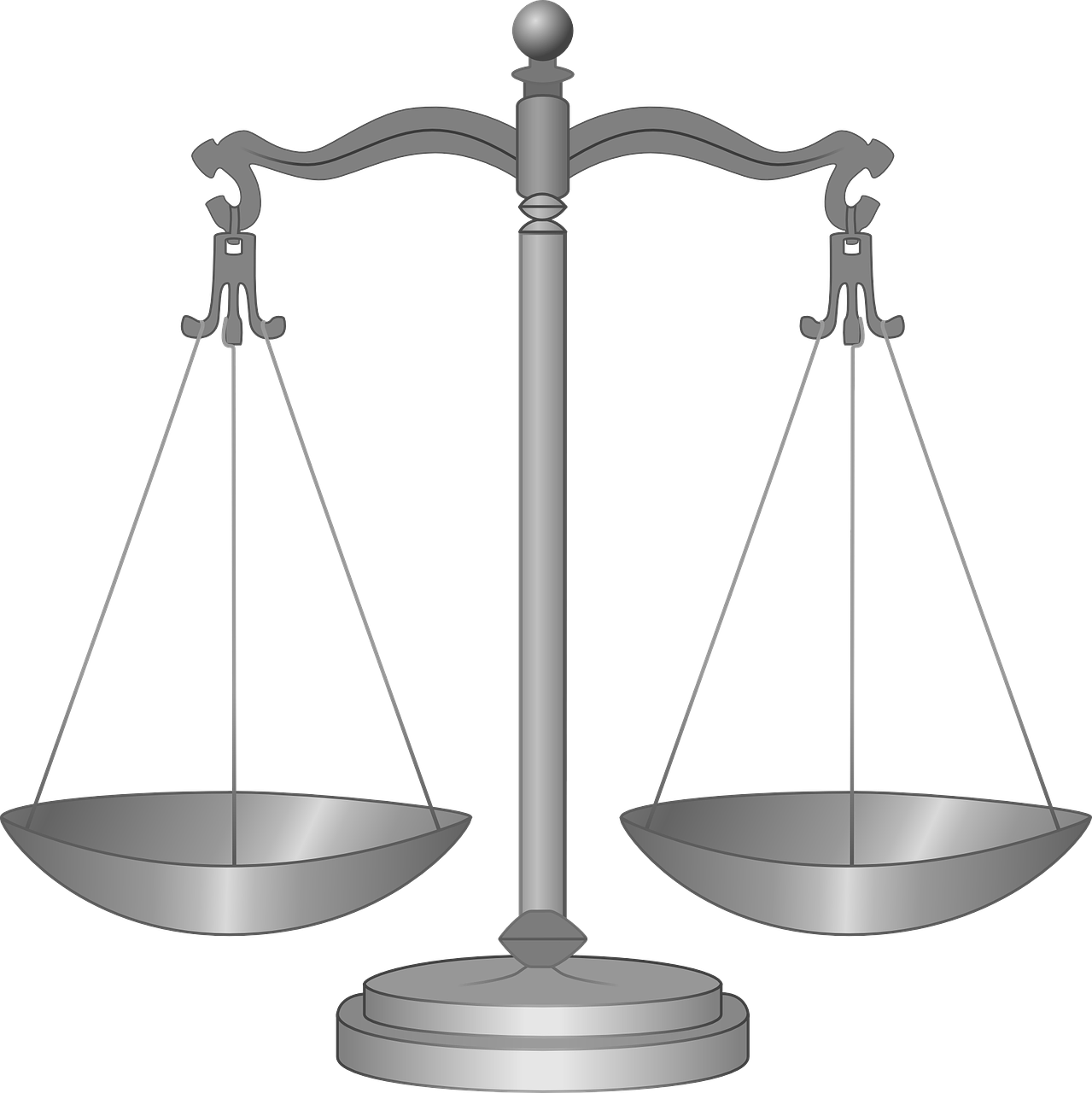Whether you are a business owner, marketing professional, or simply a curious individual, having a comprehensive understanding of advertising laws is crucial in ensuring compliance and avoiding potential legal issues. In the state of Utah, there are specific regulations and guidelines that govern various aspects of advertising practices. From truth in advertising to disclosures and endorsements, familiarizing yourself with these laws is paramount. This article aims to provide valuable insights into advertising laws in Utah, empowering you to make informed decisions and navigate the complex landscape of advertising regulations in the state.
Advertising Laws in Utah
Overview of Advertising Laws in Utah
Advertising is a crucial aspect of business promotion, but it is essential to operate within the legal framework to avoid potential legal issues and penalties. Utah has established specific laws and regulations to govern advertising practices within the state. This comprehensive article will provide a detailed overview of advertising laws in Utah, including licensing and registration requirements, prohibited advertising practices, truth in advertising, comparative advertising, deceptive advertising, pricing and sales promotions, advertising to children, online and digital advertising, as well as enforcement and penalties.
Licensing and Registration Requirements
Before engaging in certain advertising activities in Utah, it is important to ensure compliance with licensing and registration requirements. Depending on the nature of the advertising activity, such as telemarketing or door-to-door sales, businesses may need to obtain specific licenses or permits. It is advisable to consult with a lawyer familiar with advertising laws in Utah to determine the necessary licenses and permits required for your particular advertising activities. Additionally, businesses should also consider registering their trademarks and copyrights to protect their intellectual property rights.
Prohibited Advertising Practices
To maintain fair competition and protect consumers, Utah has established regulations prohibiting certain advertising practices. False or misleading claims, unauthorized use of third-party intellectual property, unfair competition, and advertising of illegal products or services are strictly prohibited. It is essential for businesses to carefully review their advertising content and ensure that it does not violate these regulations. Working with a knowledgeable business lawyer can help you understand the specific prohibited advertising practices in Utah and ensure compliance.
Truth in Advertising
Utah advertising laws require businesses to make truthful and substantiated claims in their advertisements. Advertisements must use clear and unambiguous language, avoiding misleading or deceptive statements. Consumers should be provided with accurate and honest information about a product or service to make informed decisions. Compliance with truth in advertising regulations is crucial to maintain consumer trust and avoid legal consequences.
Comparative Advertising
Utah allows the use of comparative advertising, which is the practice of comparing one product or service to another. However, there are specific requirements and limitations that businesses must adhere to when engaging in comparative advertising. The comparative statements made must be truthful, substantiated, and not misleading. It is important to consult with a business lawyer familiar with advertising laws to ensure compliance with these regulations.
Deceptive Advertising
Understanding and avoiding deceptive advertising practices is essential to ensure compliance with Utah advertising laws. Deceptive advertising refers to any form of advertising that misleads or deceives consumers. This can include false claims, misleading pricing, or other deceptive tactics. It is important for businesses to thoroughly review their advertising materials to identify and eliminate any deceptive elements. Working with a knowledgeable business lawyer can help ensure compliance with deceptive advertising regulations.
Pricing and Sales Promotions
Utah has specific regulations regarding price advertisement and sales promotions. Businesses must accurately represent the prices of their products or services in their advertising materials. Misleading pricing practices, such as false discounts or deceptive sales promotions, are strictly prohibited. It is essential for businesses to fully understand and comply with these regulations to avoid legal issues and maintain consumer trust.
Advertising to Children
When advertising products or services targeted towards children, businesses must consider special considerations and comply with specific regulations. Certain types of advertisements, such as those promoting unhealthy products or exploiting children, may be restricted or prohibited. It is important for businesses to be aware of these regulations and ensure their advertisements comply with the specific guidelines when targeting children as an audience.
Online and Digital Advertising
In the digital age, online advertising has become an increasingly important aspect of business promotion. However, advertising laws in Utah also extend to online and digital advertising. Businesses engaging in online advertising must comply with the same regulations that apply to traditional advertising mediums. It is crucial to understand the specific requirements and limitations for online and digital advertising in Utah to avoid potential legal issues.
Enforcement and Penalties
The enforcement of advertising laws in Utah is carried out by various regulatory bodies and agencies. Violations of advertising laws can result in penalties, fines, or other legal consequences. It is important for businesses to be proactive in complying with advertising regulations to avoid these penalties. Consulting with a business lawyer who specializes in advertising laws can help businesses navigate the regulatory landscape and ensure compliance with Utah’s advertising laws.
Overview of Advertising Laws in Utah
Importance of Understanding Advertising Laws in Utah
Understanding advertising laws in Utah is crucial for businesses operating within the state. Violations of advertising laws can lead to severe consequences, including legal penalties, reputational damage, and loss of consumer trust. By familiarizing yourself with the advertising laws in Utah, you can proactively ensure that your advertising practices align with the legal requirements, protect your intellectual property rights, and maintain fair competition in the marketplace.
Relevant Regulatory Bodies and Agencies
In Utah, several regulatory bodies and agencies play a significant role in the enforcement of advertising laws. These organizations are responsible for overseeing compliance, investigating complaints, and taking appropriate actions against violators. Some of the relevant regulatory bodies and agencies in Utah include the Utah Division of Consumer Protection, the Utah Department of Commerce, the Utah State Bar Association, and the Federal Trade Commission. Working with a business lawyer who is well-versed in advertising laws in Utah can help you navigate the regulatory landscape and effectively address any legal concerns.

Licensing and Registration Requirements
Licenses and Permits for Certain Advertising Activities
Depending on the nature of your advertising activities, you may be required to obtain specific licenses or permits in Utah. Some common examples include telemarketing licenses, door-to-door sales permits, or licenses for outdoor advertising displays. It is important to consult with a business lawyer who can evaluate your advertising practices and help determine the necessary licenses and permits required in Utah.
Registration of Trademarks and Copyrights
Registering your trademarks and copyrights can provide valuable protection for your intellectual property rights. Although registration is not mandatory in Utah, it offers several advantages, such as legal recognition, presumption of ownership, and the ability to take legal action against infringers. By working with a business lawyer familiar with intellectual property laws, you can navigate the registration process and ensure the proper safeguarding of your trademarks and copyrights.
Prohibited Advertising Practices
False or Misleading Claims
Utah advertising laws strictly prohibit false or misleading claims in advertisements. It is essential to ensure that all claims made in your advertising materials are truthful, accurate, and substantiated. Any form of false or misleading information can have severe legal consequences, including penalties and reputational damage. Working with a business lawyer can help you review your advertising content and eliminate any false or misleading claims.
Unauthorized Use of Third-Party Intellectual Property
Using another company’s intellectual property without permission, such as trademarks or copyrighted materials, is against the law in Utah. It is crucial to respect and protect the intellectual property rights of others when creating advertising materials. Seek legal guidance to ensure that your advertisements do not infringe upon any third-party intellectual property rights.
Unfair Competition
Utah advertising laws also prohibit unfair competition practices. Unfair competition refers to any practice that harms the legitimate interests of other businesses or consumers. This can include false advertising, misleading pricing, or deceptive promotional strategies. Businesses must operate within the boundaries of fair competition to maintain a level playing field and protect consumers. Consulting with a business lawyer can help you understand the specific regulations regarding unfair competition and avoid any potentially harmful practices.
Advertising of Illegal Products or Services
Utah strictly prohibits the advertising of illegal products or services. Any advertisement that promotes illegal activities or products, such as drugs, counterfeit items, or illegal gambling, is against the law. It is essential for businesses to ensure that their advertising materials only promote legal and lawful products or services. Consulting with a business lawyer can help you navigate these regulations and ensure compliance with the law.

Truth in Advertising
Requirement of Truthful and Substantiated Claims
Truth in advertising is a fundamental principle in Utah’s advertising laws. Businesses must ensure that all claims made in their advertisements are truthful and substantiated. Misleading or false statements can lead to legal consequences, including negative reputational effects and loss of consumer trust. By working with a business lawyer familiar with advertising laws, you can ensure that your advertising content is accurate, honest, and supported by evidence.
Use of Clear and Unambiguous Language
Utah advertising laws require businesses to use clear and unambiguous language in their advertisements. Ambiguous or confusing statements can mislead consumers and result in legal issues. It is important to communicate your advertising message in a concise and straightforward manner, ensuring that consumers fully understand the nature of your products or services. A business lawyer can provide valuable guidance in reviewing your advertising materials and ensuring compliance with language requirements.
Avoidance of Misleading or Deceptive Statements
It is essential for businesses to avoid any misleading or deceptive statements in their advertising materials. Statements that exaggerate the benefits or capabilities of a product or service beyond what they can realistically deliver can be considered deceptive. Additionally, using misleading visuals, testimonials, or price claims can also lead to legal consequences. By working with a business lawyer, you can ensure that your advertising content is not misleading or deceptive, protecting your business from potential legal issues.
Comparative Advertising
Permissible Use of Comparative Advertising
Comparative advertising, the practice of comparing one product or service to another, is generally permissible in Utah. Comparative advertising can be an effective marketing strategy to highlight the advantages of your products or services. However, it is crucial for businesses to ensure that their comparative claims are truthful, accurate, and not misleading. By working with a business lawyer familiar with comparative advertising regulations, you can create effective comparative advertisements that comply with the law.
Requirements and Limitations
While comparative advertising is allowed in Utah, there are certain requirements and limitations that businesses must adhere to. Comparative claims must be based on factual and verifiable information, and they must not denigrate or unfairly attack competitors. Additionally, businesses must avoid creating confusion or misrepresentation through their comparative advertising. A business lawyer can provide guidance in navigating these requirements and ensuring compliance with comparative advertising regulations.
Deceptive Advertising
Understanding Deceptive Advertising Practices
Deceptive advertising is strictly prohibited in Utah. It refers to any form of advertising that misleads or deceives consumers. Deceptive advertising can include false claims, misleading pricing, hidden fees, or other tactics intended to trick consumers. It is important for businesses to thoroughly understand deceptive advertising practices to avoid inadvertently engaging in such practices and facing legal consequences.
Identification and Avoidance of Deceptive Advertising
To avoid engaging in deceptive advertising practices, businesses should carefully review their advertising materials. Implementing internal controls and reviewing advertising content can help identify any potentially deceptive elements. Seeking guidance from a business lawyer can provide valuable insights and ensure compliance with Utah’s regulations regarding deceptive advertising.
Pricing and Sales Promotions
Price Advertisement Regulations
Utah has specific regulations regarding price advertisement. Businesses must accurately represent the prices of their products or services in their advertising materials. This includes ensuring that the advertised price is not misleading or deceptive and clearly identifying any conditions or limitations associated with the price. It is crucial to understand these regulations to avoid potential legal issues related to price advertising.
Discounts, Rebates, and Sales Promotions
Businesses often use discounts, rebates, and sales promotions to attract customers. However, it is important to comply with the regulations governing these activities. Ensuring that discounts and rebates are accurately represented, clearly explaining any associated conditions or limitations, and avoiding fraudulent or deceptive practices are essential. Working with a business lawyer can help you navigate the regulations surrounding pricing and sales promotions and ensure compliance.

Advertising to Children
Special Considerations when Advertising to Children
Advertising to children requires special considerations to protect their interests and ensure ethical practices. Businesses should be cautious when creating advertisements aimed at children and ensure that they are appropriate, truthful, and do not exploit or manipulate children. Understanding the specific regulations and guidelines regarding advertising to children in Utah is essential to maintain ethical standards and avoid legal issues.
Restrictions on Certain Types of Advertisements
Utah has specific regulations restricting certain types of advertisements targeted at children. These may include advertisements promoting unhealthy products, excessive consumption, or containing inappropriate content. It is crucial for businesses to be aware of these restrictions to ensure compliance and avoid any potential legal ramifications. Consulting with a business lawyer can provide guidance on the specific regulations relevant to advertising to children in Utah.
Online and Digital Advertising
As technology advances, online and digital advertising has become an important medium for businesses to reach their target audience. However, advertising laws in Utah also extend to online and digital advertising. Businesses must ensure compliance with the same regulations that apply to traditional advertising mediums. It is essential to understand the specific requirements and limitations for online and digital advertising in Utah to avoid potential legal issues. Working with a business lawyer can help ensure compliance with these regulations and leverage the benefits of online advertising.
Enforcement and Penalties
The enforcement of advertising laws in Utah is carried out by various regulatory bodies and agencies, including the Utah Division of Consumer Protection and the Federal Trade Commission. Violations of advertising laws can result in penalties, fines, and other legal consequences. It is crucial for businesses to proactively comply with advertising regulations to avoid these penalties and maintain a positive reputation. Consulting with a business lawyer who specializes in advertising laws can help navigate the regulatory landscape and ensure compliance with Utah’s advertising laws.
Frequently Asked Questions
1. What are the consequences of violating advertising laws in Utah?
Violating advertising laws in Utah can result in various consequences, including penalties, fines, legal disputes, reputational damage, and loss of consumer trust. It is crucial for businesses to comply with advertising regulations to avoid these potential consequences.
2. Do I need legal assistance to ensure compliance with advertising laws in Utah?
While it is not mandatory to seek legal assistance, consulting with a business lawyer familiar with advertising laws in Utah can provide valuable guidance. A lawyer can help you understand the specific regulations applicable to your business and ensure compliance to avoid potential legal issues.
3. Can I advertise products or services that are prohibited under federal law?
No, it is not permissible to advertise products or services that are prohibited under federal law. Businesses must ensure that their advertising materials promote legal and lawful products or services to avoid potential legal consequences.
4. Is it necessary to register my trademarks and copyrights before advertising?
While it is not mandatory to register trademarks and copyrights in Utah, doing so provides several benefits, including legal recognition and the ability to take legal action against infringers. Consult with a business lawyer to determine the best course of action for protecting your intellectual property rights.
5. Are there specific regulations regarding online advertising in Utah?
Yes, advertising laws in Utah extend to online and digital advertising. Businesses must comply with the same regulations that apply to traditional advertising mediums. It is essential to understand the specific requirements and limitations for online advertising in Utah to avoid potential legal issues. Consult with a business lawyer to navigate these regulations effectively.